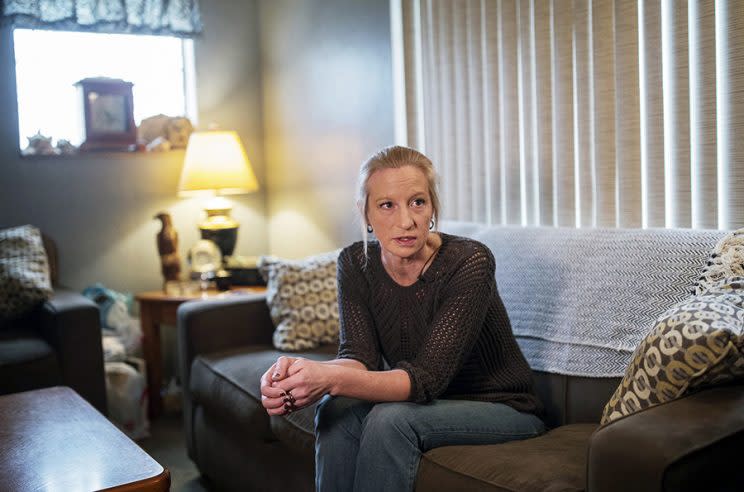Mom Writes an Emotional Obituary for Her Daughter Who Was an Addict

A grieving mother fulfilled her daughter’s last wish by raising awareness about drug addiction.
On Jan. 15, 20-year-old Casey Marie Schwartzmier, of Ross Township, Pa., died from an apparent accidental overdose of heroin. The young lady’s family decided not to submit the standard obituary to Trib Total Media (which delivers news to southwestern Pennsylvania). Instead, Michelle Schwartzmier wrote a heartfelt account of her deceased daughter’s ongoing battle with addiction.
“Casey never wanted to be defined only by her addiction and mistakes, she was so much more than that,” wrote Michelle. “She made it clear if she was to ever pass as a result of it, she wanted people to know the truth with the hope that honesty about her death could help break the stigma about addicts and get people talking about the problem of addiction that is taking away so many young lives.”

Michelle also mentioned how her daughter shared the same dreams as most young adults — Casey had high hopes of landing a successful career and becoming a mother. She wanted nothing more than to just live, yet she struggled with her addiction until the very end. In fact, she was scheduled to enter rehab the day after her life abruptly ended.
“Addiction doesn’t discriminate, it will take hold and destroy anyone in its path, including the families and people who love them,” the obituary continued. “Addiction hides in the faces of everyday people all around us.”
Michelle told the Washington Post that her daughter began showing sings of addiction during high school. Yet even though Casey was fighting her own inner battle, she’d encourage others who were also suffering to seek help. And shortly before Casey’s death, Michelle said, her daughter sent her a link to an obituary that was written by a parent about their child who died from an addiction.
“She said, ‘I would want that,” Michelle told the Washington Post. “She said, ‘I would want you to tell them my story.’ … She said, ‘Because when I read this, it helps me,’ she said, ‘so I think it could help someone else.’”

According to a report from the Drug Enforcement Administration (DEA), the heroin threat has been on the rise since 2007 — with a 248 percent increase between 2010 and 2014. Also, results from the 2016 National Drug Threat Assessment revealed that 45 percent of participants from the U.S. Northeast and Midwest felt that “heroin was the greatest drug threat in their area, more than for any other drug.”
“Many cites are reporting the increase in heroin overdose deaths is more common in the suburban areas and outlying counties surrounding the cities,” states the DEA report.
“Addiction, much like diabetes, is a chronic disease — not a behavioral problem,” Indra Cidambi, MD, an addiction medicine specialist and founder and medical director of Center for Network Therapy (New Jersey’s first licensed outpatient detox facility), tells Yahoo Beauty.
She explains that drugs disrupt the part of the brain — the nucleus accumbens — responsible for producing the neurotransmitters dopamine (which brings about feelings of joy and pleasure) and serotonin (which helps regulate mood).
“The pathways in the brain change over time and [this] interferes with an individual’s ability to resist cravings and urges,” continues Cidambi. “Consequently, individuals who repeatedly use drugs become dependent on the drugs to feel good and to feel happy.”
Heroin, she states, is a fast-acting opioid, which is “converted to morphine in the brain and binds quickly to opioid receptors, making the brain work harder and faster.” Cidambi adds that one out of four people who try heroin become addicted to it, yet contrary to popular belief, addiction does not occur after a single use of the drug.
“But what the first use of heroin can do is initiate a compulsive cycle that can lead to addiction,” she says.
Cidambi further explains the challenges an addict might face after returning home from a stay at a rehabilitation facility. “He/she may feel overwhelmed by life pressures that were held at bay while they were away in treatment, and oftentimes relapse quickly,” she states. “The danger this time, though, is that their tolerance for their substance of choice has been lowered significantly due to their clean time, and the probability of overdosing increases dramatically.”
She believes that one possible alternative for those suffering from an addiction can be an ambulatory (outpatient) detoxification model. “This modality of care helps the patient adapt and cope with their home environment while they receive treatment rather than isolating from it,” she says. “We should not lose another child — or any other individual — to this scourge of addiction!”
Michelle Schwartzmier concluded her daughter’s obituary with these poignant words: “Casey isn’t just another statistic or just ‘another one gone too soon,’ she was a great heart with a bright future and a gift that the world lost and can never be replaced. So the best way to honor Casey, is for people who read this or knew her to think twice before you judge an addict.”
Let’s keep in touch! Follow Yahoo Beauty on Facebook, Twitter, Instagram, and Pinterest.
